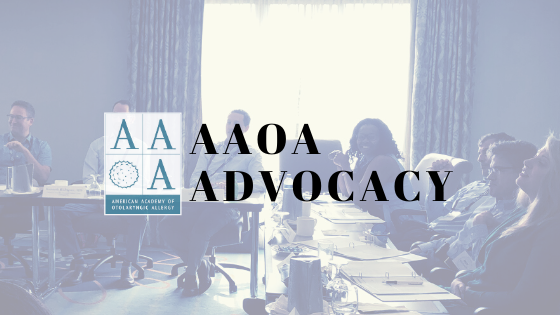“Incredible change happens in your life when you decide to take control of what you do have power over instead of craving control over what you don’t”. — Steve Maraboli Perhaps it is the thick fog of humidity engulfing the…
Congress and Administration Take Aggressive Action to Address COVID-19 Pandemic but Providers Continue to Struggle
Congress has passed four pieces of legislation and the Centers for Medicare & Medicaid Services (CMS) has released two interim final rules with comment periods (IFC) to address the increasing demands placed on the health care system by the COVID-19 pandemic. These policies have authorized new programs, appropriated trillions in new funds, and provided new regulatory flexibilities. However, many providers have
not yet received the relief needed to support their practices during this public health emergency (PHE).
Congress approved the CARES Act at the end of March. This legislation authorized the Public Health and Social Services Emergency (PHSSE) Fund to provide financial support to hospitals and other health care providers and the Paycheck Protection Program (PPP), a forgivable loan program
administered by the Small Business Administration, designed to provide support for payroll and other operating expenses, like insurance premiums, mortgage, rent, and utility payments.
Many AAOA members are eligible for funds through both these programs. The CARES Act also authorized the Treasury Department to provide financing to banks and other lenders to make direct loans to businesses with between 500-10,000 employees, expanded CMS’ telehealth authorities, provided Medicare sequester relief, and expanded coverage for COVID-19 diagnostic tests.
To provide additional funds to a number of the programs in the CARES Act, Congress passed an interim COVID-19 emergency relief package at the end of April that included an additional $75 billion for the PHSSE Fund to provide hospitals and health care providers with financial support for COVID-19 related expenses and lost revenue as well as provide funding
for targeted COVID-19 testing and care in rural areas and for the uninsured. Despite the $175 billion that has been appropriated for this fund, there are still significant concerns that the money has not supported many of the practices and providers with significant need. The Department of Health and Human Services continues to disburse these funds and details on how can be found here. This bill also included an infusion of funds for the PPP that had already exhausted its original appropriation.
Now, Congress has shifted its focus to the development of a fourth COVID-19 relief package – likely to be the last large relief package. Details on the timing and the content of this package remain unclear, however House Speaker Nancy Pelosi (D-CA) has signaled that she plans to address hazard
pay for health care workers on the front lines, funding for state and local governments, disparities in COVID-19 testing, and policies to prepare the health care system for a second surge of infections in this package. We may even see a draft of the Speaker’s legislative proposal as soon as later this week with the goal that the House will vote before Memorial Day, jumpstarting negotiations with the Senate and the White House. Ultimately, we do not expect additional legislation to be enacted before early to mid-June.
Congress and Administration Take Aggressive Action to Address COVID-19 Pandemic but Providers Continue to Struggle Using new authorities provided by Congress as well as its waiver authority during the PHE, CMS has released two interim final rules with comment period, the first on March 30 and the second on April 30, and a number of waiver. Here are
the changes that have been implemented that have a direct impact on AAOA members and their practices:
- Congress has vastly expanded CMS’ telehealth authorities. Providers can now bill the new and established outpatient E/M services via telehealth, which requires both an audio and visual connection, to patients in their homes. E/M services delivered via telehealth services are reimbursed at the facility rate. The Office of Civil Rights has also provided HIPAA flexibilities allowing providers to serve patients using apps like FaceTime and Skype.
- More services can now be delivered via telehealth and CMS has relaxed the process for adding new services to its telehealth services list during the PHE. The current list is available here.
- CMS responded to provider concerns about the values of the telephone E/M services (CPT codes 99441-99443) since they have been unable to established audio and visual connections with many Medicare beneficiaries. These three codes, which prior to the PHE were not billable, have been crosswalked to CPT codes 99212, 99213, and 99214 for outpatient E/M services. The values of these codes which were increased in the second IFC are retroactive to March 1.
- The agency has relaxed its direct supervision requirements. Now, physicians or other practitioners can provide direct supervision by using real time audio/visual technology.
- CMS has temporarily waived Medicare and Medicaid’s requirements that physicians and non-physician practitioners must be licensed in the state where they are providing services, allowing physicians to deliver care to beneficiaries across state lines. However, state laws still apply.
- Many providers have expressed concerns about completing the Quality Payment Program requirements during the PHE. In the Merit-based Incentive Payment System (MIPS), CMS will not impose a penalty on providers who did not submit their 2019 performance data by April 30, 2020. The agency has also modified its extreme and uncontrollable circumstances policy for those providers who have been impacted by the COVID-19 outbreak.
- CMS has also delayed the implementation of the Qualified Clinical Data Registry (QCDR) measures testing and data collection policies by one year. These policies were originally scheduled to be implement in 2020.
CMS continues to engage with stakeholders and receive feedback on how their policies can be further adjusted to provide additional flexibilities during the PHE. AAOA will continue to keep you updated on any changes made by the agency.





